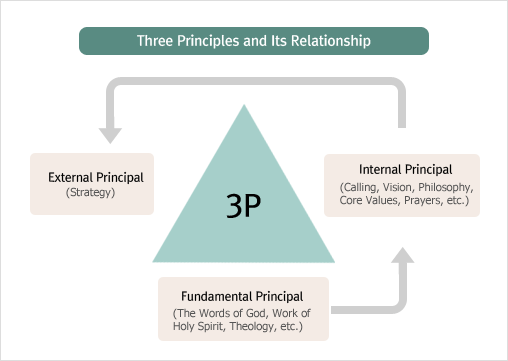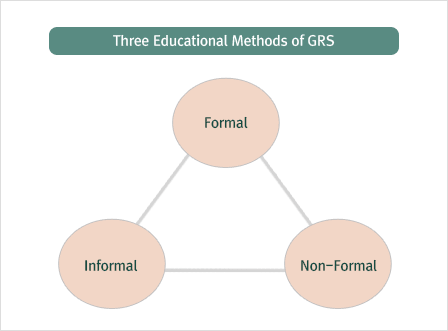Principles of Education at GRS
All GRS courses address three significant areas in theological education from a Reformed perspective: Biblical ontology, social scientific methodology, ministerial field
1.

Three Principles of Theological Education at GRS and its Relationship
2.

Three emphases in the philosophy of education of GRS: 3 Ks.
3 K’s: Know your text, know yourself and know your context
3.

Educational methodology of GRS
-
Formal education: Classes with Curriculum
-
Non-formal: Small Group education
-
Informal learning: Learning Community
4.

A New paradigm for post-graduate theological education: Its meaning and significance :
The Korean church supports GRS financially and administratively, working together with American churches for global theological education. In most cases within the USA, Korean churches operate seminaries with Koreans. American churches operate American seminaries having some international faculty and students, but in the main Anglo-American theological schools operate without an in depth understanding and respect for cross-cultural differences. These are not given prime consideration in most cases so that both the Korean-American and Anglo-American schools operate in a somewhat ethnocentric manner.
If most of the students seeking a missional-oriented education are first generation Korean students or are students related to the Korean seminaries overseas, the Korean church must direct the program for more effective theological education, handling their cultural issues properly, and at the same time, maintaining the high standard and quality of education in the Anglo-America seminaries. This is a another reason we need a new paradigm in theological education in this global era.
